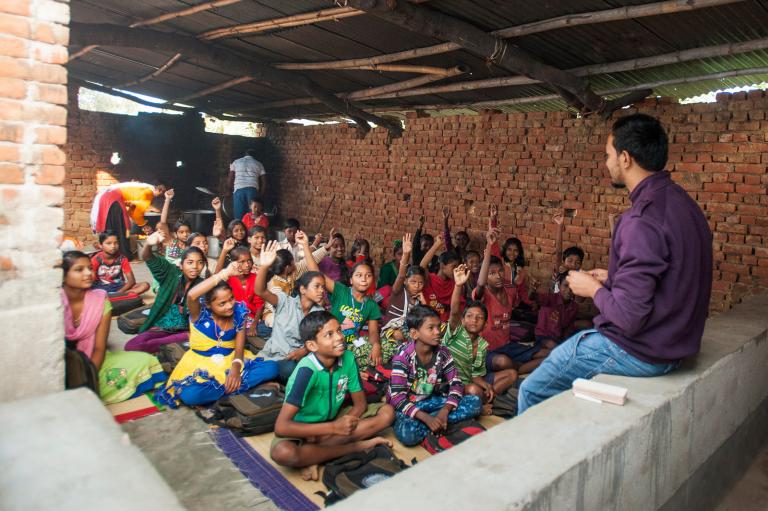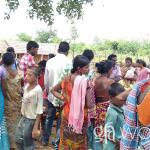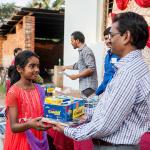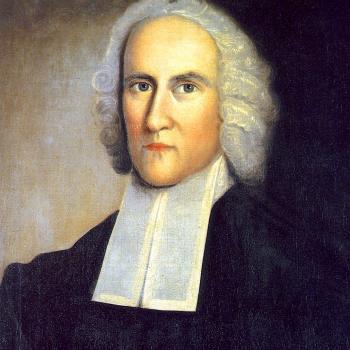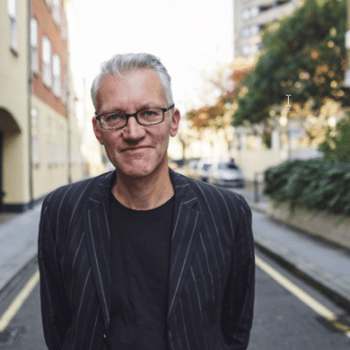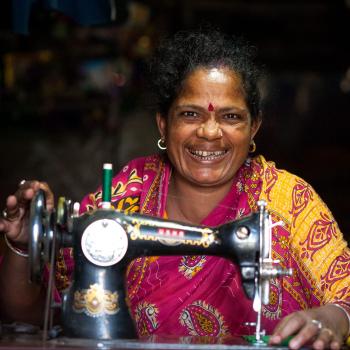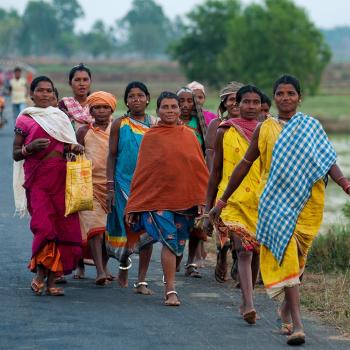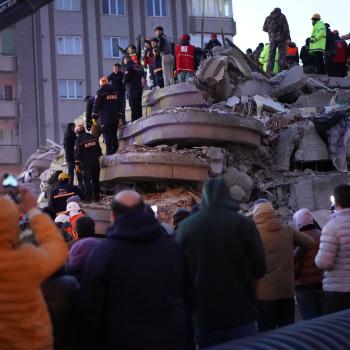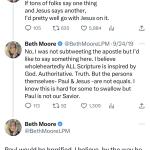WILLS POINT, TX – Gospel for Asia (GFA World and affiliates like Gospel for Asia Canada) founded by KP Yohannan, issued this Special Report on the massive challenge of reducing extreme poverty worldwide, mainly through providing education, transmitting values.
In my original special report for Gospel for Asia titled Solutions to Poverty-line Problems of the Poor and Impoverished, I explored education’s impact on extreme poverty eradication. This update explores the idea that uprooting poverty requires education that transmits positive values.
Reducing extreme poverty is a massive challenge. Groups around the globe approach the issue in a variety of ways, the most common of which is by providing education. A strong, multifaceted link bonds poverty and lack of education, so experts around the globe are attempting to bring education into poverty-stricken areas.

Photo by The Schumacher Institute
But even with academic lessons and increased school attendance among low-income families, children will be short-changed if in the end they don’t gain the ultimate endowment: ideas and values that empower them to thrive.
Martin Luther King Jr. said, “Intelligence plus character—that is the goal of true education.” According to Aristotle, “Educating the mind without educating the heart is no education at all.”
E.F. Schumacher writes in his influential economics book Small Is Beautiful, “The task of education would be, first and foremost, the transmission of ideas of value, of what to do with our lives. There is no doubt also the need to transmit know-how, but this must take second place, for it is obviously somewhat foolhardy to put great powers into the hands of people without making sure that they have a reasonable idea of what to do with them.”
“When people ask for education,” Schumacher continues, “they normally mean something more than mere training. … I think what they are really looking for is ideas that would make the world, and their own lives, intelligible to them.”
Why do ideas and values matter so much? Because they have the power to transform the world—to uproot global poverty.
Concepts like honesty, diligence, respect, compassion and valuing human life are widely acknowledged as good—yet in many communities around the world these values are not being demonstrated or taught to children. When one individual has a foundation of beneficial values like these, he or she can impact other lives, from their own family to the entire world. For the sake of simplicity, our individual will be referred to as “he,” although both males and females are able to make incredible changes to the world around them.
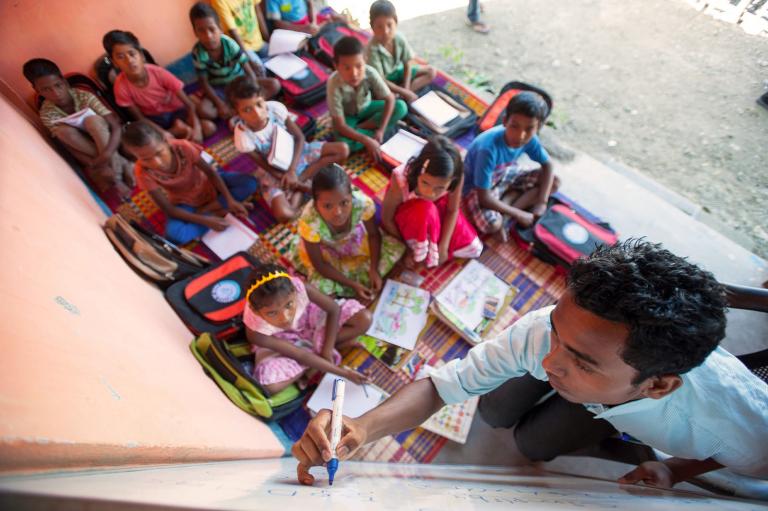
Personal Impact of Ideas, Education
Schumacher defined education’s primary purpose as being the transmission of values. Positive values and ideas make a significant impact on one individual, and global change is impossible without changed individuals. The story of a young boy in Asia exemplifies the life-changing power of education plus ideas.
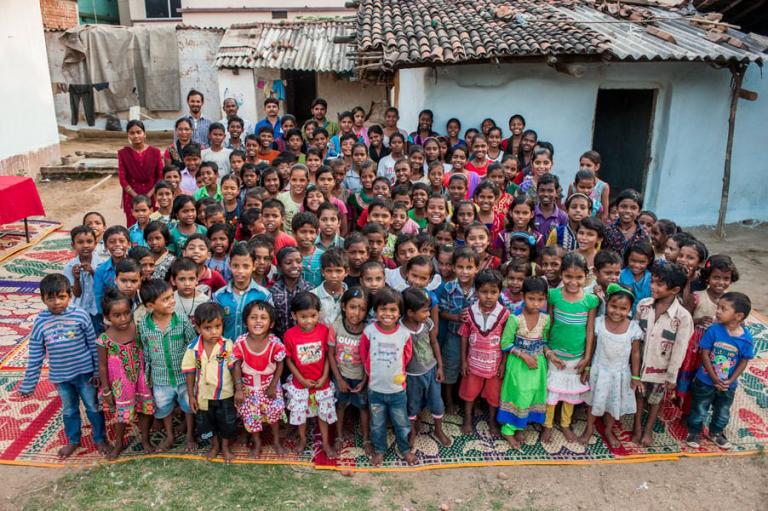
Six-year-old Bir helped his farming family by scavenging for plastic bags they could use to take their produce to market. His community held fast to time-honored traditions, which ensured stability but also locked families into generations of poverty.
Even though Bir’s family lived in poverty, the young boy still had the gift of attending school. But he floundered in the classroom. His books were filled with valuable information, and his teachers taught lessons that had the potential to change Bir’s life, but Bir lacked the discipline of listening and didn’t know how to get the knowledge from his books into his mind. The shame from his terrible grades stamped out the little boy’s motivation. Education was in his hands, but it wasn’t enough.
Then a GFA World Bridge of Hope center opened in his village. Bir and dozens of other kids in the village enrolled, eager to receive free tutoring and supplemental education.
Most of the children attending Bridge of Hope live in deep poverty. Many reside in places where impoverished children grow up hearing they aren’t important, they can’t ever amount to much, and they don’t deserve anything better. But at Bridge of Hope, they hear something very different.
Alongside their schoolwork, Bridge of Hope children learn lessons on values such as diligence, honesty, kindness, respect and more. They learn their lives matter—no matter how poor their families are or how behind they are in their studies. Students thrive under the enriched education they receive from their Bridge of Hope teachers, and they gain courage and motivation to make the best of their lives.
Through these foundational teachings at his Bridge of Hope center, Bir changed. He saw his potential and diligently applied himself to his studies—and to his chores at home. He learned to honor his parents, and he worked hard. By the time Bir completed 10th grade, he stood at the top of his class. Armed with impressive grades and strong values undergirding his choices and habits, Bir could pursue a college education with every reason to hope for continued success in life.
Education changed Bir’s life, but it wasn’t through academics alone. The right values enabled Bir—and thousands of other children like him—to succeed in schooling and find a better way of life. For the rest of their lives, Bridge of Hope children like Bir will know they, along with every other person, have worth and purpose. They will have the know-how to pursue their goals and to help those around them. They will become promising citizens any nation would be proud to claim as their own.

Ideas’ Impact on the Family
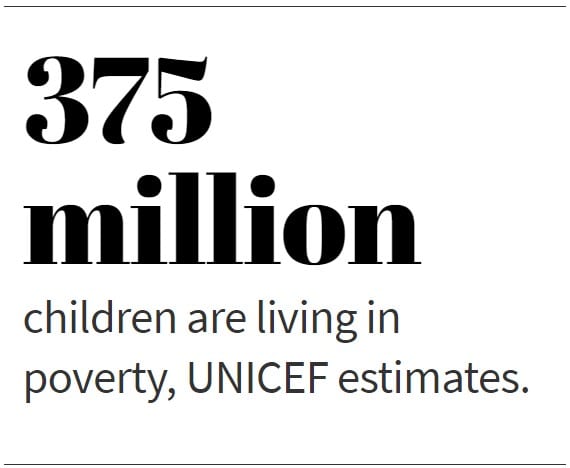 Thanks to quality, value-centered education, children become well-rounded, capable, confident adults. They know how to implement knowledge to better themselves and others, and they have a sense of participation in the world around them.
Thanks to quality, value-centered education, children become well-rounded, capable, confident adults. They know how to implement knowledge to better themselves and others, and they have a sense of participation in the world around them.
How will they impact their future families?
Parents play an undeniably important role in children’s lives. According to an article on parenting skills from Encyclopedia on Early Childhood Development, “Many of the skills children acquire during the early years are fundamentally dependent on the quality of their interactions with their parents. For instance, parents play an important role in fostering children’s early learning (e.g., language and problem-solving abilities) and in shaping their social-emotional skills (e.g., emotion regulation, reactivity to stress and self-esteem).”
The article goes on to state how the parents’ involvement with their child heavily influences the future success of the child’s cognitive potential, social skills and behavioral functioning.
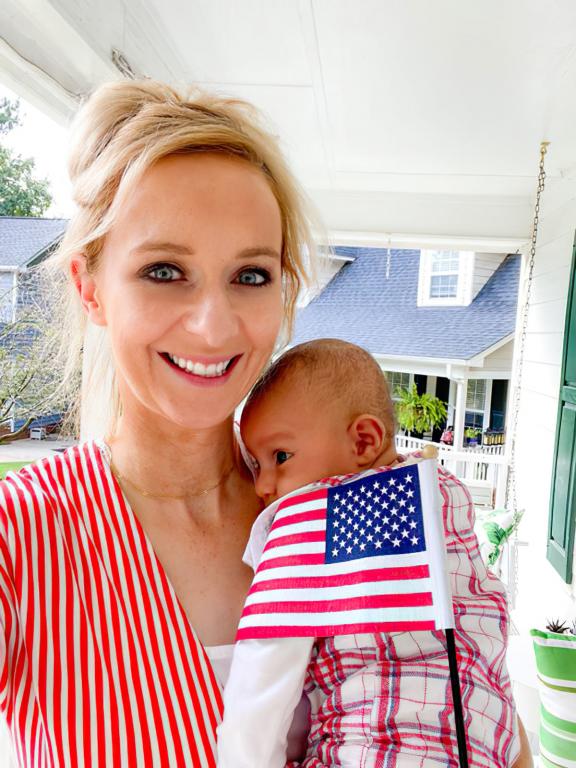
Photo by @annaegalite
Anna J. Egalite, assistant professor of education at North Carolina State University, reaffirms the impact of parents’ education on a child’s success. She writes, “In most studies, parental education has been identified as the single strongest correlate of children’s success in school, the number of years they attend school, and their success later in life.”
Values are always passed along from one generation to the next—but they can be beneficial or detrimental. A parent who values the rights and dignity of others will teach their children to do likewise, even if they live in poverty and their society mistreats them because of their low status. A parent whose diligence and integrity enabled them to overcome financial and societal obstacles will encourage their child to press on in the same way. Their message to their children will be, “You can do it!” Conversely, a parent who doubts their worth and that of others, or who was discouraged from rising above “their station” will likely pass a dooming message to their children, squelching aspirations for a better life.
Poverty is a heritage millions of children receive—and wrestle to be free of. UNICEF estimates 375 million children are living in poverty. But when parents or teachers pass an education, filled with empowering ideas, into those young hands, the horizon holds incredible opportunity. The foundation of global poverty quivers, just one generation later.
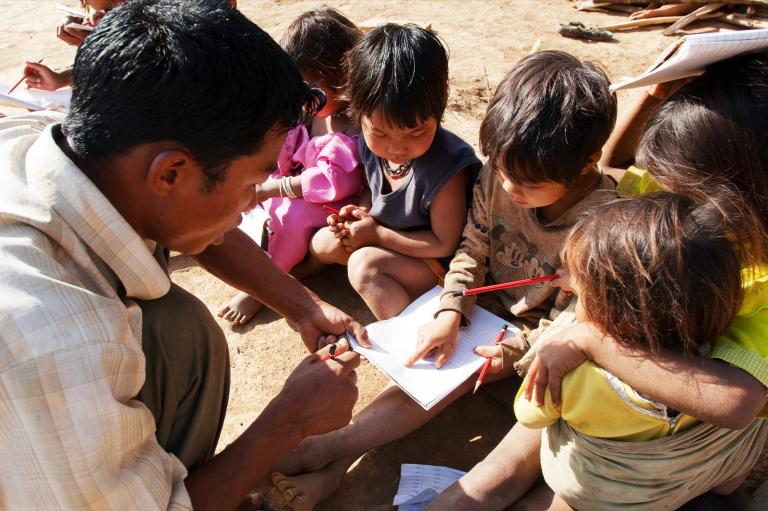
Ideas’ Impact on Society
History provides ample examples, some inspiring and some horrifying, of how ideas and values impact society and poverty.
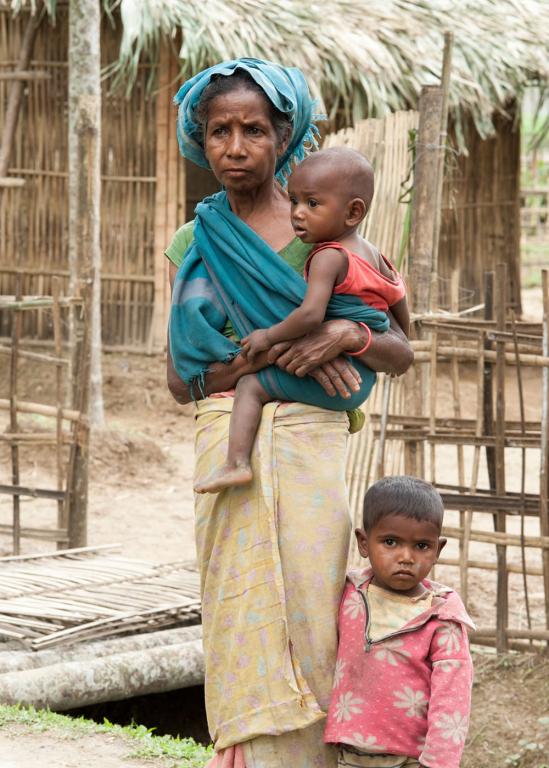
Some values led to the formation of the slave trade, while other values led to its abolition. Some ideologies spurred violence, while others prompted the construction of relief camps and orphanages. The ideas propelling men like Stalin and Hitler left behind a wake of death and poverty. These examples reveal the importance of having positive guiding values.
The plight of the world’s 258 million widows, and hundreds of thousands of people with leprosy, reveals how harmful ideas actively reinforce poverty in our time.
Widows and leprosy patients in Asia typically live in positions of great need. Misfortune has made their lives very challenging, yet very few people around them consider them worthy of generosity.
Despite living where honor is a key fiber of the culture, widows of any age may be cast out of the home, abandoned to fend for themselves or easily taken advantage of. Many cultures hold the idea that a husband’s death is the fault of the wife; thus, when the husband dies, the widow “deserves” to be shunned. Over the decades, that idea has irreparably harmed the lives of countless widows and their young children, who also suffer the consequences of their mother’s rejection and subsequent poverty.
Similarly, leprosy patients are commonly expelled from their homes, disowned by their family members and even divorced on the grounds of their diagnosis. Poverty quickly fills the void created by retreating family members.
Neither a husband’s death nor a disfiguring disease justifies neglecting a human being. But in many societies in Asia and other parts of the world, this neglect is the norm and is even supported through legislation.
But look at what happens when positive values enter a widow’s life and replace damaging ones.
Last year, Gospel for Asia (GFA World) shared the story of a woman in Asia named Prina. When her two sons had grown, she discovered she had leprosy. Not long after her diagnosis, her husband was murdered during a land dispute. Prina now bore the double burden of leprosy and widowhood, both of which brought great ostracism from her community.

Prina was not forced to make her own way in the world, as many others have been, nor did she fall into extreme poverty as a result. But her son’s family, with whom she lived, banished her to one room in the house. None dared enter it. They brought her food once a day but only stood at the door. Prina was alone.
Then one day, some women from a local GFA Women’s Fellowship came to Prina’s home. Unlike most others in their culture, they did not fear Prina’s status as a widow or her disease. The women treated Prina with respect and love—something Prina had not experienced for many years.
The Women’s Fellowship team explained that Jesus loved her. Hearing this, Prina’s heart lifted. She mustered her courage and ventured out of her home to attend a worship service with her new friends. There, she received love and acceptance. And soon, after much prayer, Prina received healing from the physical pain her disease caused.
Prina’s son and the entire community witnessed a better way to treat widows and leprosy patients, and it left an impression. The values of unconditional love and compassion, lived out by a few women in the name of Christ, transformed Prina’s situation. And these values can transform so many more.
Provide Values-centric Education to Children at Risk in Asia »
If you want to help children at risk in South Asia, consider a one-time donation to stand in the gap for boys and girls who need to be freed from hopeless situations into Bridge of Hope, where they can receive an education that transmits positive values, and provides a hope-filled future.
About Gospel for Asia
Gospel for Asia (GFA World) is a leading faith-based mission agency, helping national workers bring vital assistance and spiritual hope to millions across Asia, especially to those who have yet to hear about the love of God. In GFA’s latest yearly report, this included more than 70,000 sponsored children, free medical camps conducted in more than 1,200 villages and remote communities, over 4,800 clean water wells drilled, over 12,000 water filters installed, income-generating Christmas gifts for more than 260,000 needy families, and spiritual teaching available in 110 languages in 14 nations through radio ministry. For all the latest news, visit our Press Room at https://press.gfa.org/news.
Read the rest of Gospel for Asia’s Special Report: Fighting Global Poverty with Ideas — Uprooting poverty requires education that transmits values — Part 2
Learn more by reading these Special Reports from Gospel for Asia:
- The Scandal of Starvation in a World of Plenty — World Hunger’s Ugly Truths Revealed
- Poverty: Public Enemy #1 — Eliminating Extreme Poverty Worldwide is Possible, But Not Inevitable
This Special Report originally appeared on gfa.org.
Read what Christian Leaders have to say about Gospel for Asia.
Click here, to read more blogs on Patheos from Gospel for Asia.
Learn more about Gospel for Asia: Facebook | YouTube | Instagram | LinkedIn | SourceWatch | Integrity | Lawsuit Update | 5 Distinctives | 6 Remarkable Facts | 10 Milestones | Media Room | Fighting Global Poverty | Endorsements | 40th Anniversary | Lawsuit Response |
Notable News about Gospel for Asia: FoxNews, ChristianPost, NYPost, MissionsBox


